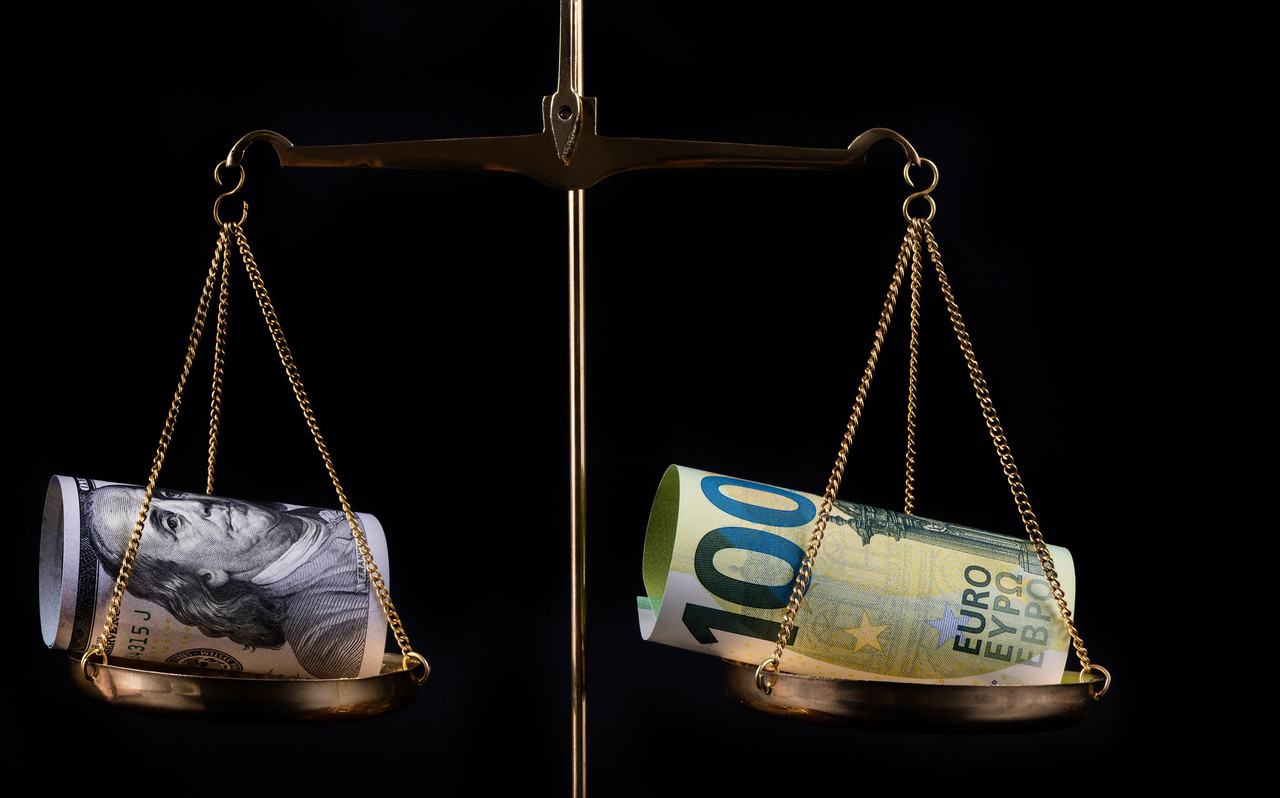The euro’s slide against the dollar can be dizzying. At the beginning of the year, one euro was worth 1.137 dollars. Today, it takes one euro to get one dollar. And although the euro fell below the dollar on 22 August to 0.99 dollars, it is still a long way from its historic low of 0.8272 seen on 25 October 2000. And also far from its ‘physical’ introduction level of $0.8895 on 1 January 2002.
Why has the euro fallen so far? Firstly, because the dollar is benefiting from both the US Federal Reserve’s rate hike and the US has had a better economic outlook.
The weakness of the euro also reflects the weak state of the European economy, which is being hit hard by the effects of the Russian war in Ukraine and questions about the health of Germany. It should be noted that the euro is not only weak against the dollar, but against all major international currencies, with the notable exception of the Japanese yen.
Read also
This weakness of the euro is serious for the economy in the current context of rising inflation.
Firstly, because it increases the cost of the main commodities that are mainly traded in dollars on the markets. This includes oil. In mid-August 2022, over a 12-month period, Brent crude oil was up 7.5% in dollars and 23% in euros. Over the same period, WTI was up 17.5% in dollars and 35% in euros. This is the opposite of 2008 when the price of oil soared, but the weak dollar acted as a shock absorber.
The ECB’s dilemma
A weak euro therefore has an additional inflationary effect. This effect is estimated at between 0.4 and 0.5 points of inflation in the euro zone. This poses a real problem for the European Central Bank.
Of course, managing the euro exchange rate is not part of its mandate. Nor is it part of the ECB’s mandate to support economic activity, which has been practised without interruption since 2008.
While inflation reached +8.9% in July on an annualised basis in the euro zone, can it raise its rates to compensate for the rate differential, which has widened with the United States and which reinforces the attractiveness of the dollar for investors to the detriment of the euro, at the risk of precipitating a recession?
We are entering a political debate that goes beyond monetary policy.
The hedge fund EDL Capital said that “Europe is on the brink of disaster, which could lead to its dismantling. It has no ‘common treasury’ and the cost of holding Europe together is high,” it noted in a letter to its investors. EDL Capital is betting on a euro at $0.80. Speculative attacks against the European currency cannot be ruled out. The Italian elections on 25 September could kick off this game.
Craftsmen and households among the most vulnerable
What does the Luxembourg economy risk in this context?
Max Rosen, junior economist at the Chamber of Commerce, said the effects of these exchange rate fluctuations on imports are immediate and are reflected in a rise in the price of products and services imported from outside the euro zone.
They hit the most importing companies first, which are faced with additional costs and the problem of passing on these increases to their customers. “The big losers are small businesses that do not export.” That is mainly the craft sector.
Large companies generally put hedging mechanisms in place to mitigate the effects of currency fluctuations. This is particularly the case in air transport.
The other big losers are households whose purchasing power is eroded. “This can lead to collective or individual demands for wage increases,” he said. .
But a weak euro is beneficial for exports by making European products more competitive, as demand increases. Unfortunately, “the effects always take longer to take hold”.
The “immediate” positive effects of the weak euro are mainly felt in the .
Opportunities for the region
They should also be felt in foreign investments, with Rosen mentioning real estate and the installation of production facilities. “A weak euro offers them opportunities. As the Luxembourg financial centre specialises, among other things, in the structuring of such international investments, it is possible that Luxembourg will benefit in part from these investments, which may be managed via Luxembourg.”
Fluctuations in the currency markets generally have a limited impact on financial centres, “particularly because all the players normally protect themselves against these currency risks. They even make money by trading in the international currency markets,” he stated.
The “real” risk for the financial centre would be if the ECB’s monetary policy were to tighten too much. A rise in rates has a negative effect on the stock markets, particularly on valuations. It could also deteriorate banks’ mortgage portfolios.
Originally published in French by and translated for Delano
